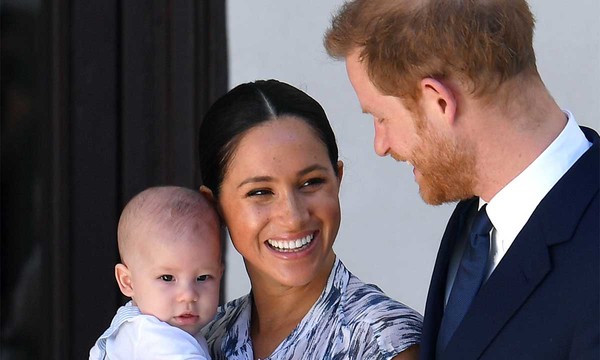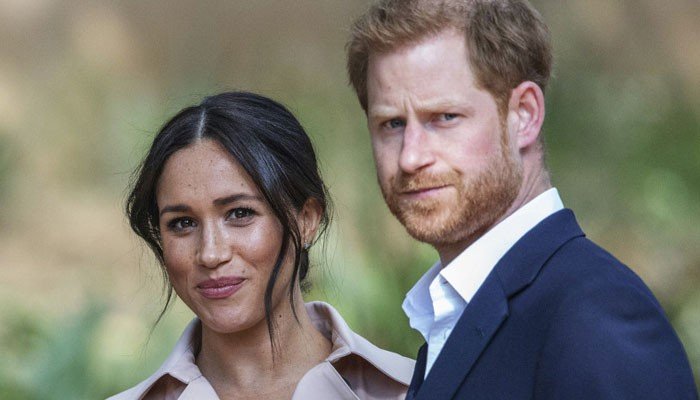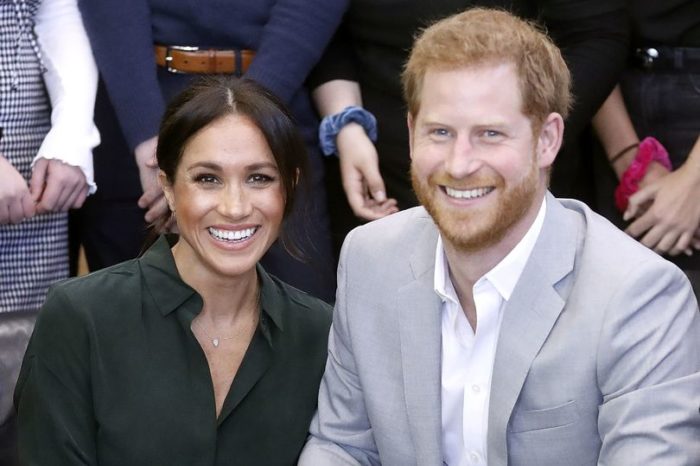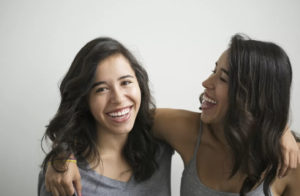Meghan Markle Decries The Toxicity That She And Harry Have Faced In The Media And She Opens Up About How Devastating It Was To Return To The US In The Time Of The “Black Lives Matter!” ProtestS
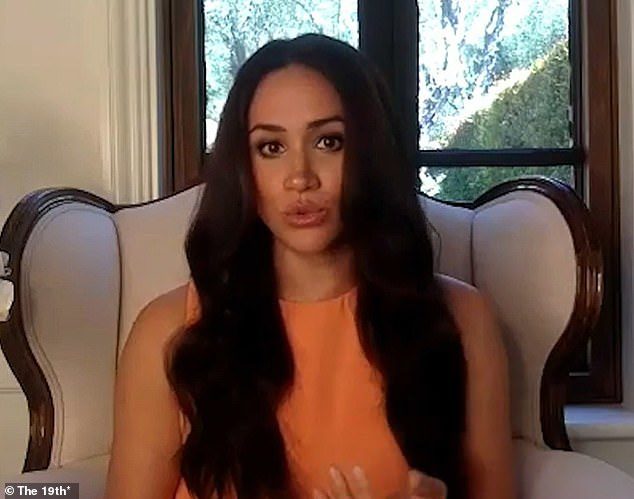
Meghan Markle decries the toxicity that she and Harry have faced in the media and she opens up about how ‘devastating’ it was to return to the US in the time of the Black Lives Matter protests
The Duchess of Sussex decried ‘salacious’ journalism in a new video interview, stressing the importance of reporting done through a ‘compassionate and empathetic lens’. She was also slamming what she and Prince Harry call the ‘toxicity’ in the ‘economy for attention.’
Meghan Markle was the finale event for The 19th Represents 2020 Virtual Summit, she was sitting down for a one-on-one virtual interview with The 19th co-founder and CEO Emily Ramshaw.
She also offered her own opinions on the state of journalism, opening up about how her personal experience in the past couple years has changed her view on the media. She said that she and Prince Harry believe that there is too much emphasis based on ‘salacious’ details.

It is another chapter in the couple’s war against the media and comes days after the release of flattering ‘unauthorised’ biography of William and Kate, Finding Freedom. It features a host of intimate information about the couple from an army of anonymous friends and sources.
The couple insist they were not interviewed for Finding Freedom, but author wrote in the back of the book that they were involved in writing in some way.
During the interview, Meghan discussed how much influencebmedia can have and how quite a bit of that influence can come from a single person.
‘What’s so fascinating, at least from my standpoint and my personal experience in the past couple years, is the headline headline alone, the clickbait alone, makes an imprint,’ she said.
‘That is part of how we view the world, how we interact with other people. ‘
‘There is so much toxicity out there in what is being referred to as, my husband and I talk about it often, this to the economy for attention,’ she went on. ‘That is what is monetizable right now.’
‘So if you’re just trying to grab someone’s attention, you’re going for something salacious versus what is truthful.’
‘And I think that once we can get back to the place where what you’re creating is so important, where people are just telling the truth in their reporting, and telling it through a compassionate and empathetic lens, it’s gonna help bind people. ‘
‘It’s gonna build community in a way I think that at the moment we’re feeling much more of a disconnect in a space where it could be one more of connection.’ Meghan said she hopes that The 19th, which bills itself as ‘a nonprofit, nonpartisan newsroom reporting at the intersection of gender, politics and policy,’ will help lead the way in the kind of reporting she wants to see.
‘People are craving a change,’ she said. ‘I think in the place that we’re all in right now, people are starting to question the systems that we’ve always believed in, where we are getting our information from as well. ‘
‘I think, you know, you want to have trust in journalism, and you want to have trust in what you’re reading, and hope that it’s fact.’
‘We’ve become so, sadly, comfortable with the idea that we are just getting all this stuff and it becomes noise as opposed to truth and accurate journalism, so I think, if this can be the catalyst for reset for other news organizations, my goodness, it’s going to change the game so much.’
On the subject of influence in the media, Meghan said she was recently reading an article about suffragettes, and how the term was initially coined by a man to belittle the women involved.
‘What I find so fascinating is that was then, before digital media, before the online space, before things could travel around the world with rapid fire. And the American women who started the suffrage movement didn’t want to be called suffragettes.’
Yet the term, she said, stuck.
‘When you look at that, and when you look at it through that lens of the power of one person’s influence in the media, to be able to shape an entire movement, or way of thinking, or an ideology, or an identification, if women have their voice heard as equally, how different that would have been,’ she said.
What stuck with her about the article was ‘the ability of influence, and if it’s only coming from a patriarchal lens, how that’s shaping everything that we see.’
Meghan, who also revealed that she spoke to feminist icon Gloria Steinem, spoke briefly in the interview about the upcoming presidential election in the US and she said that voting is so important and that is something she is very passionate about.
‘I think it’s often challenging for men and women alike, for people to remember just how hard it was to get the right to vote. And be really aware of not taking that for granted,’ she said.
‘I look at my husband, for example. He’s never been able to vote. And I think it’s such an interesting thing to say, the right to vote is not a privilege, it’s a right in and of itself.’
She added that women’s voices are needed now more than ever and the best way to exercise that is through voting.
‘There is still so much work to do, we think about the Voting Rights Act, and how even at this point, I was having this conversation just yesterday, it feels like we make so many strides forward, and yet there is still so much more to do.’
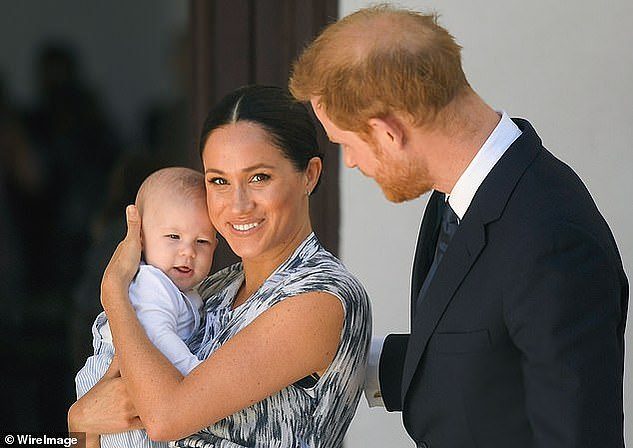
She was also talking about her recent move back to the US with family and how it was devastating to come in a time of “Black Lives Matter” protests.
‘I’d come back after being away for so long, I haven’t lived in the states for 10 years. I lived in Canada for seven years for work. So a really long lapse of time from being here,’ she said.
‘To come back and to just see the state of affairs, I think at the onset, if I’m being honest, it was just devastating. It was just sad to see where our country was at that moment. ‘
‘If there was any silver lining in that, in the weeks that were happening after the murder of George Floyd, in the peaceful protests that we’re seeing, in the voices that were coming out, in the way that people were actually owning their role and acknowledging their role that they played either actively or passively in the discrimination of other people, specifically of the black community — it shifted from sadness to a feeling of absolute inspiration because I can see that the tide is turning.’
‘I think for so many of us, its very easy to focus on the negativity because it’s what you hear out there… The loudest voices are often the negative ones, sadly,’ she said.
‘So I think, from my standpoint, it’s not new to see this undercurrent of racism and certainly unconscious bias, but I think to see the changes that are being made right now is really something that I look forward to being a part of, and being a part of using my voice in a way I haven’t been able to of late. ‘
‘So, yeah, it’s good to be home,’ she said.
In the months since moving to Los Angeles at the start of lockdown, the Duchess of Sussex has made only a few of virtual appearances.
In the immediate wake of the death of the Black Lives Matter protests sparked by the death of George Floyd, Meghan delivered a speech to the graduating class of her former high school about racial equality and justice.
She also joined Prince Harry for a virtual roundtable discussion with young leaders from around the Commonwealth.
